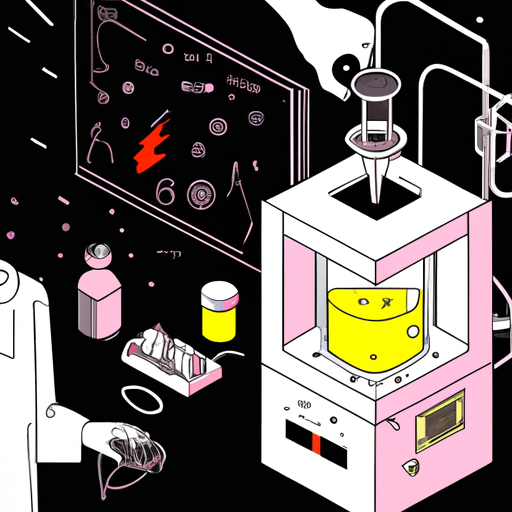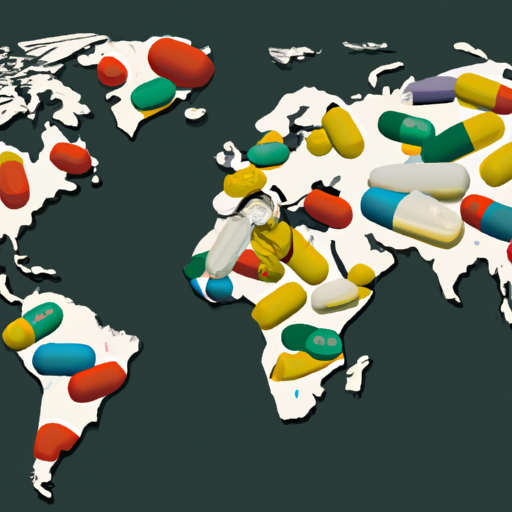This opinion piece explores the significant influence of specialty pharmaceutical companies on global health, focusing on the benefits and challenges that arise from their innovative products and business models. It scrutinizes how these companies' novel medicines, typically targeted at rare diseases, reshape the landscape of healthcare and influence health outcomes around the world.
"Innovation and Impact: The Role of Specialty Pharmaceutical Companies"
Specialty pharmaceutical companies play a crucial role in driving innovation and making a significant impact on global health. These companies are at the forefront of developing cutting-edge treatments for complex and rare diseases, addressing unmet medical needs that traditional pharmaceutical companies may not prioritize. By focusing on specialized areas such as oncology, rare genetic disorders, and autoimmune diseases, specialty pharma companies are pushing the boundaries of medical science and bringing hope to patients facing dire health challenges. Their dedication to research and development has resulted in groundbreaking therapies that have transformed the lives of countless individuals worldwide.
Specialty pharmaceutical companies bring a unique set of expertise and resources to the table, allowing them to develop tailored treatments that cater to specific patient populations. Through their targeted approach, they are able to deliver personalized medicine that is more effective and efficient, ultimately improving patient outcomes and quality of life. This precision medicine approach not only benefits patients but also contributes to the advancement of healthcare as a whole, setting new standards for treatment modalities and therapeutic interventions. The specialized knowledge and focus of specialty pharma companies enable them to navigate complex disease pathways and develop novel solutions that have the potential to revolutionize healthcare practices.

An illustration depicting the innovative and complex nature of specialty pharmaceuticals.
Does Specialty Pharma Really Meet Unmet Needs?
Specialty pharmaceutical companies have been instrumental in addressing unmet medical needs by focusing on niche areas of healthcare that are often overlooked by traditional pharmaceutical companies. Their commitment to developing treatments for rare diseases and complex conditions demonstrates a dedication to serving patient populations that may have limited therapeutic options available to them. By investing in research and development for specialized therapies, specialty pharma companies have the potential to fill critical gaps in healthcare and improve outcomes for patients facing challenging health conditions. Through their tailored approach, these companies have the capacity to deliver innovative solutions that address the specific needs of underserved patient populations.
Specialty pharma companies have the flexibility to adapt to evolving healthcare landscapes and rapidly respond to emerging health challenges, positioning them as key players in meeting unmet medical needs. Their agility allows them to pivot resources towards areas of high unmet need, accelerating the development of novel therapies and bringing hope to patients who may have previously been left without viable treatment options. By prioritizing areas such as rare diseases, oncology, and orphan drugs, specialty pharma companies are demonstrating a commitment to making a tangible impact on global health outcomes. Their targeted approach to drug development enables them to address complex diseases that require specialized treatment regimens, ultimately enhancing the standard of care for patients worldwide.
The Price We Pay: The Cost of Specialty Pharmaceuticals
The Price We Pay: The Cost of Specialty Pharmaceuticals:
The development of specialty pharmaceuticals often involves complex research processes, leading to higher production costs compared to traditional medications. These elevated expenses are reflected in the price tags of specialty drugs, making them significantly more expensive for patients and healthcare systems to afford. The high cost of specialty pharmaceuticals can pose a barrier to access for many individuals, particularly those without adequate insurance coverage or financial resources. As a result, patients may face challenges in obtaining the life-saving medications they need, impacting their health outcomes and quality of life. Furthermore, the pricing strategies employed by some specialty pharma companies have come under scrutiny for their lack of transparency and potential to exploit vulnerable patient populations.
על מנת לראות פרטים נוספים בנושא של The Impact of Specialty Pharmaceutical Companies on Global Health וrare diseases company יש להעיף מבט ב- truemedtx.com

Graph illustrating the high cost of specialty pharmaceuticals compared to traditional drugs.
"Rare Diseases, Common Challenges": The Ethical Implication of Specialty Pharma
"Rare Diseases, Common Challenges": The Ethical Implication of Specialty Pharma:
The development of specialty pharmaceuticals for rare diseases presents a unique set of ethical considerations that distinguish them from medications targeting more prevalent health conditions. Patients with rare diseases often face significant challenges in accessing appropriate treatment options due to limited research, small patient populations, and high development costs. Specialty pharmaceutical companies play a crucial role in addressing the unmet medical needs of individuals with rare diseases, offering hope where conventional treatments may fall short. However, the ethical implications arise when the high costs associated with developing and manufacturing specialty drugs result in inflated prices that place a financial burden on patients and healthcare systems.
Global Health Equity: How Far Are We?
Global health equity remains a critical issue in the context of specialty pharmaceutical companies and their impact on global health outcomes. While these companies have made significant strides in developing treatments for rare and complex diseases, disparities in access to these medications persist across different regions and populations. The question of how far we have come in achieving global health equity in the realm of specialty pharmaceuticals is complex and multifaceted.
Despite efforts to expand access to specialty drugs through initiatives such as differential pricing strategies and patient assistance programs, barriers such as high costs, regulatory hurdles, and healthcare infrastructure limitations continue to hinder equitable distribution. Disparities in access to specialty pharmaceuticals not only affect individual patients but also contribute to broader global health inequities, perpetuating a cycle of unequal healthcare outcomes.

A world map highlighting disparities in access to specialty pharmaceuticals.
Navigating Monopolies: Is the Specialty Pharma Industry Too Powerful?
The concentration of power within the specialty pharmaceutical industry has raised concerns about potential monopolistic practices and their impact on global health. With a limited number of companies controlling the production and distribution of specialized medications, there is a risk of emerging monopolies that could stifle competition, drive up prices, and restrict access to essential treatments. These monopolistic tendencies within the specialty pharma sector can create barriers for smaller companies and generic drug manufacturers, limiting innovation and choice for consumers.
Moreover, the dominance of a few key players in the specialty pharmaceutical market can lead to a lack of diversity in drug development and a focus on profitability over public health needs. This consolidation of power raises questions about the industry's influence on healthcare policies, pricing structures, and patient care practices. Regulators and policymakers play a crucial role in monitoring and addressing potential anticompetitive behavior within the specialty pharma industry to ensure that patients have access to a diverse range of treatment options at fair prices.
What's Next? The Future of Specialty Pharmaceuticals
The future of specialty pharmaceuticals holds promise for advances in precision medicine, personalized therapies, and targeted treatments tailored to individual patient needs. As technology continues to evolve, we can expect to see innovative drug delivery systems, gene therapies, and biologics revolutionizing the landscape of specialty pharmaceuticals. These developments have the potential to enhance treatment outcomes, improve patient adherence, and address unmet medical needs in rare and complex diseases.
Furthermore, the integration of artificial intelligence, big data analytics, and digital health solutions is poised to streamline drug development processes, optimize clinical trials, and accelerate the delivery of novel specialty medications to market. By harnessing the power of data-driven insights and predictive modeling, pharmaceutical companies can make informed decisions, optimize resource allocation, and prioritize research efforts in areas with the greatest impact on global health.

Futuristic image of potential advancements in specialty pharmaceuticals.
While specialty pharmaceutical companies have dramatically reshaped the global health landscape by providing innovative solutions to previously unmet medical needs, their high pricing strategies and monopolistic tendencies pose significant challenges. Policymakers, health practitioners, and the pharmaceutical industry must collaborate to address these issues, ensuring that the benefits of specialty pharmaceuticals can be universally accessed and contribute to the broader goal of global health equity.
